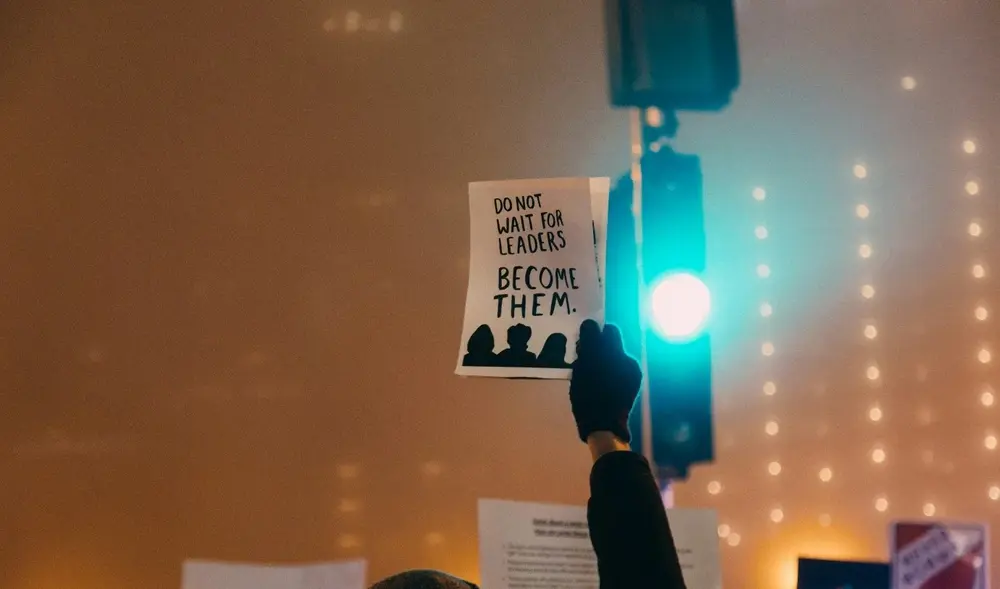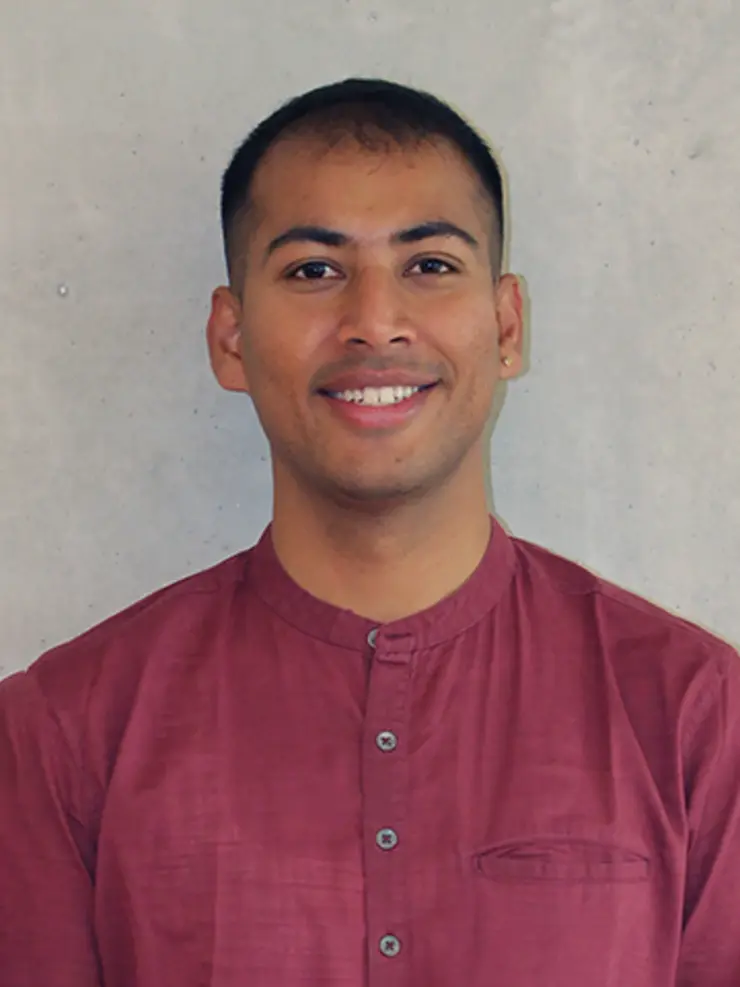Breaking the Mold: How Transformative Leadership Transcends Traditional Norms

Andrea was asked in a job interview, “You seem very friendly, but can you also be tough?” Andrea was speechless for a moment. There could be several interpretations of this question. How does one define ‘tough’ and do you need to be tough? In a general sense, toughness implies strength, firmness, and a somewhat strict attitude towards subordinates and peers in a traditional workplace setting.
The idea is that friendliness muddies the work; it does not get work done. In other words, being friendly is being soft, and being soft is being weak. And as we have been told, weakness is not a strength. This narrative and strongly held view is not limited to corporate and non-profit workplaces but are pervasive in politics and nearly every professional setting.
For decades, the image of a strong leader was synonymous with an iron fist: decisive, powerful, and often, autocratic. Trump asserts, “Biden is weak. He cannot lead America to greatness” (Charter & Zeffman, 2020). India’s Prime Minister Modi often criticizes his predecessor, Dr. Manmohan Singh, for being soft-spoken (Ramakrishnanpurnima & Tripathi, 2018). For him, Dr. Singh having a soft-spoken demeanour was equated to weakness in addressing challenges such as terrorism or political issues in the country. Jacinda Ardern also faced criticism for her perceived gentle approach to politics.
There are hundreds of thousands of examples around us that reinforce the view: softness, friendliness, being sensitive to things and people are signs of weakness. These examples show that society views such qualities are not compatible with a leader.
Must a Leader be a Messiah?
But must leaders be wrestlers? Why is it necessary for them to be tough, to be a commander wielding a cane stick, herding their sheep? That’s a very lonely perspective—an isolating attitude brimming with the belief that those one ‘leads’ must be controlled, disciplined, and brought into conformity because they are deemed inferior. This traditional leadership style, where unquestioning obedience was expected, dominated boardrooms and battlefields alike. Yet, in a world increasingly driven by collaboration, innovation, and complex problem-solving, questions are rightfully being raised about the efficacy of this model. Is unwavering authority truly the only path to achieving success? Can kindness coexist with decisiveness and strength in a leader's character?
Must the leader assume the roles of a messiah, a protector, or a god—guiding a group of individuals positioned lower in the hierarchy in several senses of the world? Does the leader need to transform others, for the sake of simplification, their followers? What are they transforming? Who are they transforming? Why is this transformation needed? The person at the pinnacle should command respect not merely due to their position in the hierarchy but rather through the strength of virtues such as being soft-spoken, compassionate, empathetic, possessing a willingness to listen to others, and the ability to attend to minute details—traits indicative of self-awareness.
The Compassionate Leader
In an ever-changing and chaotic world, the paradigm and template of leadership are shifting. It is transitioning from the traditional masculine, authoritarian, and wrestlers’ perspective of leadership to a kinder, compassionate, and inclusive model. The new emerging philosophy of compassionate leadership contends that a leader can embody both friendliness and assertiveness. They can command respect and communicate needs through non-violent means, avoiding the use of hurtful and coercive tactics. A leader can experience failure yet demonstrate leadership by accepting and acknowledging their mistakes. Throughout their leadership journey, a leader can allow themselves to be vulnerable. At the heart of this philosophy lies the idea of self-compassion—the idea that transformation needs to begin with the self.
The Pathway to Compassionate Leadership
Are these ‘transformative ideas’ of leadership lofty ideals, impractical in a real-world scenario? Similar to Andrea’s contemplation on toughness, the question of whether a leader can be inclusive, empathic, and yet decisive appears contradictory to many? But are these abilities removed from each other, mutually exclusive?
The answer is no. Research by Amy Cuddy, Matthew Kohut and John Neffinger (2013) challenges the idea that leaders must be authoritarian in order to make tough decisions. Their research finds, “leaders would do much better to begin with “love”—that is, to establish trust through warmth and understanding” (Cuddy et al., 2011). Their data indicates that if you are not well-liked, the likelihood of your employees rating you as a good leader is approximately one in 2,000.
But how can leaders inculcate qualities such as care, empathy, and self-awareness, collectively referred to as social-emotional intelligence?
One potential framework involves collaborating with a team that come from vastly diverse cultures, geographies, and professional backgrounds —common scenarios in most workplaces and organizations. These differences themselves could be considered as a hindrance in creating harmony in workflow and styles. Diversity could be seen as an obstacle—too many differences to manage.
By working as a “Community of Practice” (Wenger & Snyder, 2000) with a shared goal and adopting the non-violent communication style with four key pillars—Observations, Active Listening, Expressing Needs, and Making Requests—thought-provoking ideas can emerge. This communication style facilitates a deeper understanding of how individuals perceive work in different contexts and allows for navigating diverse perspectives to reach a collective understanding. Such an approach encourages active listening, appreciation for each member's strengths in various aspects of work, and the equitable distribution of tasks. This fosters self-compassion, acknowledging both strengths and weaknesses while collaborating with diverse perspectives, ultimately leading to collective decision-making.
However, practicing social-emotional skills such as self-compassion, active listening, and taking ownership does not imply the absence of occasional lapses, but rather the desire and consistency in striving to improve and practice these skills. Failure is integral to the process of internalizing these values until they became normalized habits. It serves as a guiding style—a more compassionate and considerate approach to both work and life.
References
Charter, D., & Zeffman, H. (2020, August 28). Donald Trump says Joe Biden will be ‘destroyer of American greatness’ if elected. www.thetimes.co.uk/article/republican-national-convention-donald-trump-says-joe-biden-will-be-destroyer-of-american-greatness-if-elected-zkchdwqq7
Cuddy, A. J. C., Glick, P., & Beninger, A. (2011). The dynamics of warmth and competence judgments, and their outcomes in organizations. Research in Organizational Behavior, 31, 73–98. doi.org/10.1016/j.riob.2011.10.004
Cuddy, A. J. C., Kohut, M., & Neffinger, J. (2013, July 1). Connect, Then Lead. Harvard Business Review. hbr.org/2013/07/connect-then-lead
Ramakrishnanpurnima, V., & Tripathi, S. (2018, January 3). Silence of the crusaders. Frontline. frontline.thehindu.com/cover-story/silence-of-the-crusaders/article10008269.ece
Wenger, E. C., & Snyder, W. M. (2000, January 1). Communities of Practice: The Organizational Frontier. Harvard Business Review. hbr.org/2000/01/communities-of-practice-the-organizational-frontier
About the Author

Pius Fozan is an author and public policy graduate student at the Willy Brandt School, University of Erfurt.
~ The views represented in this blog post do not necessarily represent those of the Brandt School. ~